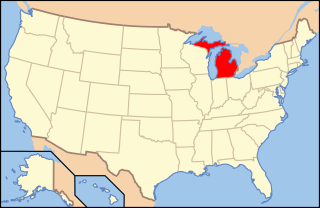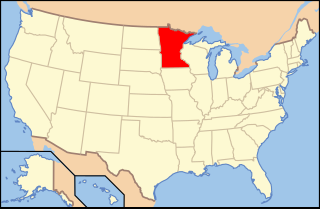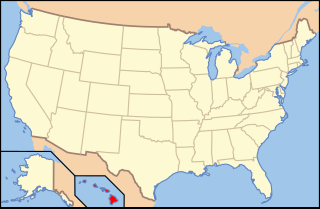Related Research Articles
The Employment Non-Discrimination Act (ENDA) is legislation proposed in the United States Congress that would prohibit discrimination in hiring and employment on the basis of sexual orientation or, depending on the version of the bill, gender identity, by employers with at least 15 employees.

Transgender rights in Canada, including procedures for changing legal gender and protections from discrimination, vary among provinces and territories, due to Canada's nature as a federal state. According to the 2021 Canadian census, 59,460 Canadians identify as transgender. Canada was ranked third in Asher & Lyric's Global Trans Rights Index in 2023.
This is a list of notable events in the history of LGBT rights that took place in the year 2005.

The Human Rights Code is a statute in the Canadian province of Ontario that guarantees equality before the law and prohibits discrimination in specific social areas such as housing or employment. The code's goal specifically prohibits discrimination based on race, colour, gender identity or expression, sex, sexual orientation, disability, creed, age and other grounds. The code is administered by the Ontario Human Rights Commission and enforced by the Human Rights Tribunal of Ontario.

Anti-discrimination law or non-discrimination law refers to legislation designed to prevent discrimination against particular groups of people; these groups are often referred to as protected groups or protected classes. Anti-discrimination laws vary by jurisdiction with regard to the types of discrimination that are prohibited, and also the groups that are protected by that legislation. Commonly, these types of legislation are designed to prevent discrimination in employment, housing, education, and other areas of social life, such as public accommodations. Anti-discrimination law may include protections for groups based on sex, age, race, ethnicity, nationality, disability, mental illness or ability, sexual orientation, gender, gender identity/expression, sex characteristics, religion, creed, or individual political opinions.

Canadian lesbian, gay, bisexual, and transgender (LGBT) rights are some of the most extensive in the world. Same-sex sexual activity, in private between consenting adults, was decriminalized in Canada on June 27, 1969, when the Criminal Law Amendment Act, 1968–69 was brought into force upon royal assent. In a landmark decision in 1995, Egan v Canada, the Supreme Court of Canada held that sexual orientation is constitutionally protected under the equality clause of the Canadian Charter of Rights and Freedoms. In 2005, Canada became the fourth country in the world, and the first in the Americas to legalize same-sex marriage. In 2022, Canada was the third country in the world, and the first in North America, to fully ban conversion therapy nationwide for both minors and adults.
This is a list of notable events in the history of LGBT rights that took place in the year 2007.
A protected group, protected class (US), or prohibited ground (Canada) is a category by which people qualified for special protection by a law, policy, or similar authority. In Canada and the United States, the term is frequently used in connection with employees and employment and housing. Where illegal discrimination on the basis of protected group status is concerned, a single act of discrimination may be based on more than one protected class. For example, discrimination based on antisemitism may relate to religion, ethnicity, national origin, or any combination of the three; discrimination against a pregnant woman might be based on sex, marital status, or both.

Lesbian, gay, bisexual, and transgender (LGBT) people in the U.S. state of Michigan enjoy the same rights as non-LGBT people. Michigan in June 2024 was ranked "the most welcoming U.S. state for LGBT individuals". Same-sex sexual activity is legal in Michigan under the U.S. Supreme Court case Lawrence v. Texas, although the state legislature has not repealed its sodomy law. Same-sex marriage was legalised in accordance with 2015's Obergefell v. Hodges decision. Discrimination on the basis of both sexual orientation and gender identity is unlawful since July 2022, was re-affirmed by the Michigan Supreme Court - under and by a 1976 statewide law, that explicitly bans discrimination "on the basis of sex". The Michigan Civil Rights Commission have also ensured that members of the LGBT community are not discriminated against and are protected in the eyes of the law since 2018 and also legally upheld by the Michigan Supreme Court in 2022. In March 2023, a bill passed the Michigan Legislature by a majority vote - to formally codify both "sexual orientation and gender identity" anti-discrimination protections embedded within Michigan legislation. Michigan Governor Gretchen Whitmer signed the bill on March 16, 2023. In 2024, Michigan repealed “the last ban on commercial surrogacy within the US” - for individuals and couples and reformed the parentage laws, that acknowledges same sex couples and their families with children.

Lesbian, gay, bisexual, and transgender (LGBT) people in the U.S. state of Minnesota have the same legal rights as non-LGBT people. Minnesota became the first U.S. state to outlaw discrimination based on sexual orientation and gender identity in 1993, protecting LGBT people from discrimination in the fields of employment, housing, and public accommodations. In 2013, the state legalized same-sex marriage, after a bill allowing such marriages was passed by the Minnesota Legislature and subsequently signed into law by Governor Mark Dayton. This followed a 2012 ballot measure in which voters rejected constitutionally banning same-sex marriage.

Lesbian, gay, bisexual, and transgender (LGBT) people in the U.S. state of New Jersey have the same legal rights as non-LGBT people. LGBT individuals in New Jersey enjoy strong protections from discrimination, and have had the same marriage rights as heterosexual people since October 21, 2013.

The U.S. state of New York has generally been seen as socially liberal in regard to lesbian, gay, bisexual, and transgender (LGBT) rights. LGBT travel guide Queer in the World states, "The fabulosity of Gay New York is unrivaled on Earth, and queer culture seeps into every corner of its five boroughs". The advocacy movement for LGBT rights in the state has been dated as far back as 1969 during the Stonewall riots in New York City. Same-sex sexual activity between consenting adults has been legal since the New York v. Onofre case in 1980. Same-sex marriage has been legal statewide since 2011, with some cities recognizing domestic partnerships between same-sex couples since 1998. Discrimination protections in credit, housing, employment, education, and public accommodation have explicitly included sexual orientation since 2003 and gender identity or expression since 2019. Transgender people in the state legally do not have to undergo sex reassignment surgery to change their sex or gender on official documents since 2014. In addition, both conversion therapy on minors and the gay and trans panic defense have been banned since 2019. Since 2021, commercial surrogacy has been legally available within New York State.

The establishment of lesbian, gay, bisexual, and transgender (LGBT) rights in the U.S. state of Connecticut is a recent phenomenon, with most advances in LGBT rights taking place in the late 20th century and early 21st century. Connecticut was the second U.S. state to enact two major pieces of pro-LGBT legislation; the repeal of the sodomy law in 1971 and the legalization of same-sex marriage in 2008. State law bans unfair discrimination on the basis of sexual orientation and gender identity in employment, housing and public accommodations, and both conversion therapy and the gay panic defense are outlawed in the state.

Lesbian, gay, bisexual, and transgender (LGBT) people in the U.S. state of Hawaii enjoy the same rights as non-LGBT people. Same-sex sexual activity has been legal since 1973; Hawaii being one of the first six states to legalize it. In 1993, a ruling by the Hawaiʻi Supreme Court made Hawaii the first state to consider legalizing same-sex marriage. Following the approval of the Hawaii Marriage Equality Act in November 2013, same-sex couples have been allowed to marry on the islands. Additionally, Hawaii law prohibits discrimination on the basis of both sexual orientation and gender identity, and the use of conversion therapy on minors has been banned since July 2018. Gay and lesbian couples enjoy the same rights, benefits and treatment as opposite-sex couples, including the right to marry and adopt.

Lesbian, gay, bisexual, and transgender (LGBT) people in the U.S. state of Pennsylvania enjoy most of the same rights as non-LGBT people. Same-sex sexual activity is legal in Pennsylvania. Same-sex couples and families headed by same-sex couples are eligible for all of the protections available to opposite-sex married couples. Pennsylvania was the final Mid-Atlantic state without same-sex marriage, indeed lacking any form of same-sex recognition law until its statutory ban was overturned on May 20, 2014.

Lesbian, gay, bisexual, and transgender (LGBT) rights in the U.S. state of Alaska have evolved significantly over the years. Since 1980, same-sex sexual conduct has been allowed, and same-sex couples can marry since October 2014. The state offers few legal protections against discrimination on the basis of sexual orientation and gender identity, leaving LGBT people vulnerable to discrimination in housing and public accommodations; however, the U.S. Supreme Court's ruling in Bostock v. Clayton County established that employment discrimination against LGBT people is illegal under federal law. In addition, four Alaskan cities, Anchorage, Juneau, Sitka and Ketchikan, representing about 46% of the state population, have passed discrimination protections for housing and public accommodations.
The Sexual Orientation Non-Discrimination Act (SONDA) is a New York law which prohibits discrimination on the basis of actual or perceived sexual orientation in employment, housing, public accommodations, education, credit, and the exercise of civil rights. Passed in 2002, SONDA added the term "sexual orientation" to the list of specifically protected characteristics in various state laws, including the Human Rights Law, the Civil Rights Law, and the Education Law.
The Gender Expression Non-Discrimination Act (GENDA) is a 2019 New York law which added gender identity and gender expression to the state's human rights and hate crimes laws as protected classes; banned discrimination in employment, housing, and public accommodations based on gender identity and gender expression; and provided enhanced penalties for bias-motivated crimes. GENDA was first introduced in 2003. The bill passed the New York State Assembly every year from 2008 to 2019, but did not receive a floor vote in the New York State Senate until January 2019. It was passed by each house of the New York State Legislature on January 15, 2019, and New York Gov. Andrew Cuomo signed it into law on January 25, 2019.

LGBT employment discrimination in the United States is illegal under Title VII of the Civil Rights Act of 1964; employment discrimination on the basis of sexual orientation or gender identity is encompassed by the law's prohibition of employment discrimination on the basis of sex. Prior to the landmark cases Bostock v. Clayton County and R.G. & G.R. Harris Funeral Homes Inc. v. Equal Employment Opportunity Commission (2020), employment protections for LGBT people were patchwork; several states and localities explicitly prohibit harassment and bias in employment decisions on the basis of sexual orientation and/or gender identity, although some only cover public employees. Prior to the Bostock decision, the Equal Employment Opportunity Commission (EEOC) interpreted Title VII to cover LGBT employees; the EEOC determined that transgender employees were protected under Title VII in 2012, and extended the protection to encompass sexual orientation in 2015.
References
- ↑ N.Y. Executive Law §§291, 296-a (McKinney 2005)
- ↑ Holland v. Edwards, 282 A.D. 353, 357 (N.Y. App. Div. 1953)
- ↑ "Mission Statement | New York State Division of Human Rights". dhr.ny.gov. Retrieved 2021-04-27.